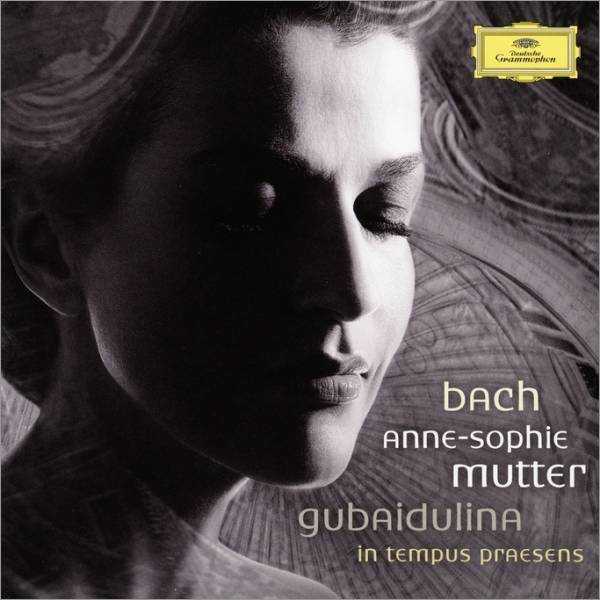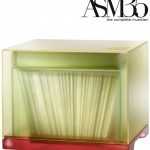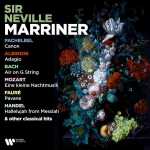
Performer: Anne-Sophie Mutter, Trondheim Soloists
Orchestra: London Symphony Orchestra
Conductor: Valery Gergiev
Composer: Johann Sebastian Bach, Sofia Gubaidulina
Audio CD
Number of Discs: 1
Format: FLAC (tracks)
Label: Deutsche Grammophon
Size: 270 MB
Recovery: +3%
Scan: no
01. Violin Concerto No.1 in A minor, BWV 1041 – 1. (Allegro moderato)
02. Violin Concerto No.1 in A minor, BWV 1041 – 2. Andante 6:41
03. Violin Concerto No.1 in A minor, BWV 1041 – 3. Allegro assai
04. Violin Concerto No.2 in E, BWV 1042 – 1. Allegro
05. Violin Concerto No.2 in E, BWV 1042 – 2. Adagio
06. Violin Concerto No.2 in E, BWV 1042 – 3. Allegro assai
07. In tempus praesens (Concerto for Violin and Orchestra)
“In tempus praesens” — a triumph for Sofia and Anne-Sophie!
“I am a religious person…and by ‘religion’ I mean re-ligio, the re-tying of a bond…restoring the legato of life. Life divides man into many pieces…There is no weightier occupation than the recomposition of spiritual integrity through the composition of music.” –Sofia Gubaidulina
“In tempus praesens” (2007 — 32’45) is an absolutely stunning new violin concerto. Promised long ago to Anne-Sophie Mutter by Sofia Gubaidulina, it was finally finished in 2006/2007, and premiered at the Lucerne Festival in August 2007, performed by Mutter and the Berlin Philharmoniker with Simon Rattle conducting. For this premiere recording Valery Gergiev leads the London Symphony Orchestra. The now 77-year-old composer has been intimately involved in both of these premieres, supervising the rehearsals and insuring that her vision is conveyed.
“In tempus praesens” features a nearly unbroken solo line, a virtuoso vehicle for Mutter and surely many others to come. Though seemingly depicting a spiritual journey like her first violin concerto Offertorium (1980 — 35’34 — see my review), this new piece presents the soloist with less orchestral accompaniment, perhaps more purely. The orchestra menaces periodically, but not with as much vehemence as in the earlier work. And if the ending is not entirely unambiguous, the radiant rising tones of the violin nonetheless sound victorious. For Gubaidulina music always conveys a deep spiritual significance and, no matter how much she has been influenced by Webern, there is always a clear meaning to every note — though there are no lyrics, this is not abstract, non-representational music. There are tones for good (generally high and major key), and for evil (generally low and minor key). An Orthodox Christian, her vision is practically Zoroastrian in its binary purity — Light versus Darkness.
The two Sophies, Sofia and Anne-Sophie, seem to see it as natural to include violin concertos by Bach along with Gubaidulina, as Bach is a major influence on the Russian/Tatar composer. However, the music does not sound at all similar, structural or harmonic influences notwithstanding. It seems more likely to me that this was a marketing decision — Bach will clearly outsell Gubaidulina, and so more people will probably buy this as a Mutter disc, or a Mutter/Bach disc than as a Gubaidulina or Mutter/Gubaidulina disc-with-Bach-thrown-in like me. On the bright side, this may mean that Sofia gains more listeners than she would otherwise. But we can still regret that Anne-Sophie did not record a new performance of “Offertorium” for this DG release.
As for the Bach concertos, they sound great. The melodies are instantly recognizable, some of the most memorable in all of classical music. Both of these works were later turned into keyboard concertos by Bach as well — the recordings by Murray Periahia and the Academy of St. Martin in the Fields of the “Concerto No. 3 in D Major” (Violin Concerto for E Major) and “Concerto No. 7 in G Minor” (Violin Concerto in A Minor) are sparkling and wonderful (Bach: Keyboard Concertos Nos. 3, 5, 6, 7).
All in all, one of the classical recording events of the year!




This disc I have since long, but never really listened to these Bachs. A couple of outer movements somewhat fast, from what memory has not neglected; and the otherwise splendid Mutter has a Bartoliesque tendency of “revitalizing” those all to familiar works with steroids they are healthy content without, making them stronger thus weaker. However Big B is immune system incarnate, and it is always nice to have him another release from period straitjacket views. The Bach pair are certainly not bad here, but well-known as is Mutter: a predictable delivery i can even easier create in my mind, preferred prejudice and tweaking at will. Gubaidulina is the treat here. Yes, hence it be known that Gubaidulina is a joker, and a good one. To those of you tired of her frowned-brow output, this is your spoon of sugar! I actually thought she was joking with that recurring leap for structural significance, the more so in the finale, and, be that as it may, that alone is enough vitamin for my view of her. As had she taken Penderecki’s thickest 60’s glasses and put Groucho brows on them. The underlined basic coupling of Gubaidiluna and Mutter by opus through [knowing-uttering] the name Sofia may be discarded as esoteric, unworthy of others’ effort, even selfish – but it is foremost incidental, as is life. Might as well have tongue in cheek. We are lucky enough to have such an oil of olay cover free from cheesy titles. It would then be interesting with Mutter for her next take at the Bach concertos in another 20 years to do the double violin too, as Kremer. Such essential part-editing makes for an undiagnosed sound match to Sebastian’s part-writing.
More: http://www.anne-sophie-mutter.de/me_index_gubaidulina.php
Much as I enjoyed your acerbic comments, I cannot see how they can ever be associated with this particular performance.
Thank you very much.
:lol: :lol: :mrgreen: :lol: :lol: